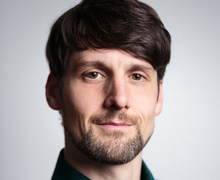Interview with Matthias Kirschner
The core values of software freedom

Matthias Kirschner will give a talk about The core values of software freedom at FOSDEM 2020.
Q: Could you briefly introduce yourself?
I am Matthias and I work for the Free Software Foundation Europe. In 1999 I started using GNU/Linux and realised over time that software is deeply involved in all aspects of our lives, from devices around us to all kind of processes. I got involved in the FSFE as its first intern in 2004 while studying Political and Administrative Science. After that I moved to Berlin so I can better participate as a volunteer in lobbying for Free Software. In 2009 I was employed full time and built up the FSFE’s Berlin office, and since 2015 I have been the FSFE’s president.
Q: What will your talk be about, exactly?
The talk is about the core values of software freedom. I will raise the question if you as a Free Software (Open Source Software) contributor have to follow a certain development or business model, and if you have to agree on certain positions like on privacy, intelligence services, the military, the climate catastrophe, nuclear power, vaccinations, or animal rights.
My main argument is that what holds us together as a group is that we want to ensure everybody, no matter what background, should be able to use software for every purpose. That everybody should be allowed to study how software works, in order to share this knowledge with others. That we allow everybody to share the software with others, whether it is to help other human beings, or simply for self-benefit. And that we respect that through our licenses other individuals, organisations or governments are allowed to modify the software to fit their needs, even if they thereby achieve goals that we might disagree with.
I will also argue that while working on Free Software / Open Source Software, we should respect others having differing or no opinions on diverging topics we care about, while not losing focus on our way to software freedom.
Q: Why this topic?
The movement for software freedom is over 35 years old now. Over this time our community got more diverse, we have contributors from many more countries, many different companies and governments. All of those people and groups have their own interests on software freedom topics, but also on diverging topics.
To make sure that the majority of humankind in the world can benefit from software freedom in the next decades, it is important that we attract even more people from even more different backgrounds while not losing the focus of what we need to achieve.
To achieve this we have to be respectful while sticking to our core values.
Q: What do you hope to accomplish by giving this talk? What do you expect?
I hope that the movement for software freedom will continue to do our part to empower users to control technology and not get distracted by other causes.
Q: You have been using GNU/Linux for more than 20 years and have been involved with FOSS since then. What has changed over these last 20 years for FOSS?
Our topic went mainstream and the knowledge we have in the software freedom community is needed in other parts of our society more than ever.
Software is influencing more and more of our lives nowadays. Thereby people and organisations start to understand what we tried to explain to them 20 years ago and get engaged in the discussions. For example, while 20 years ago most politicians were puzzled by what this “computer nerd” was talking about, today there is large interest in understanding how software is influencing our society, and what can be done to shape the direction we are heading to based on their goals. Companies, which in the past were against us now contribute to Free Software. Political groups such as the largest conservative party in the EU, the German CDU, now demand that publicly financed software should be published as Free Software by default.
Other civil society organisations are confronted with software freedom issues as one piece in a big puzzle how to achieve change in society. That’s also why I am arguing in my lightning talk on Saturday that those civil society organisations need Free Software hackers.
Q: 2020 marks the 20th anniversary of (F)OSDEM. What contributions has FOSDEM made to the advancement of FOSS, or how did the FSFE in particular benefit from FOSDEM?
FOSDEM is the meeting place for the European movement for software freedom. Each year in February, FOSDEM provides the opportunity to meet almost everyone active in the field in the same place. Others from the FSFE and myself have learnt so much during discussions we had at FOSDEM. We are able to meet people with whom for the rest of the year you mainly work with remotely, new people who joined us in our work afterwards, or who support our work for software freedom with donations.
So at the FSFE we are looking forward to welcome you at our booth at building K level 2 — just look for the colourful booth with the “I love Free Software” balloons, T-shirts, posters and info leaflets.
Q: Have you enjoyed previous FOSDEM editions?
Absolutely. Since 2005 I tried to participate at every edition and always enjoyed being there. The experiences from FOSDEM motivate me and others for the rest of the year, and give us the energy for those days or weeks where the path to software freedom feels steeper and rockier than usual.
So I’d like to use the opportunity to thank all the other participants who contribute to this experience and a big thank you to all the volunteers who organise FOSDEM and enable all of us to be there.

Creative Commons License
This interview is licensed under a Creative Commons Attribution 2.0 Belgium License.